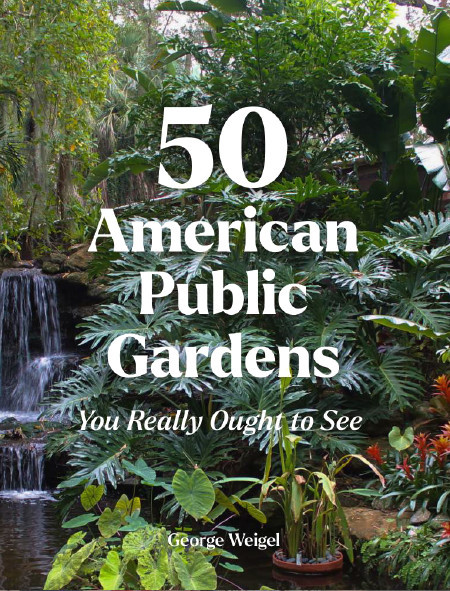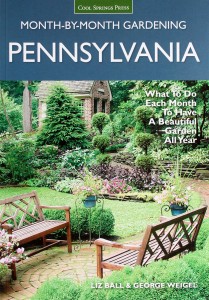The Father of Master Gardeners
June 25th, 2019
I can’t imagine the void we’d have in the gardening world if there were no such thing as Master Gardeners.
These plant-loving, sharing-minded folks – mostly retirees – volunteer millions of hours nationwide each year answering gardening questions, teaching better ways to garden, and helping home gardeners solve their garden problems.
It’s a huge and much needed service… and offered free.
But there was a time not long ago when there were no Master Gardeners. If you had a garden question, you either looked it up in a book, hoped your neighbor knew the answer, or called the county Extension agent.
Dr. David Gibby was one of those agents, now called Extension educators.
Frustrated at being able to get back to only a fraction of the hundreds of weekly callers, Gibby came up with the idea of sort of “deputizing” a corps of avid gardeners who could help out with the workload.
Despite resistance from the highers-up, he managed to recruit a team of what became the first Master Gardeners in 1973 in two counties of Washington state.
The idea went viral. These days, all 50 U.S. states have Master Gardener programs attached to their land-grant universities (Penn State in Pennsylvania), totaling 95,000 Master Gardeners nationwide.
Combined, they put in 5.5 million volunteer hours a year helping America produce better gardeners.
The idea has since spread to Canada and overseas.
Dr. Gibby is now 76 and dubbed the “father of Master Gardeners.”
I heard his fascinating story when he reminisced at last week’s International Master Gardener Conference in Valley Forge.
Fresh off a doctorate degree in botany from Utah State University, Gibby quickly found he wasn’t going to get a job teaching at a college, as he had hoped. So, he took a job with Washington State Extension in King and Pierce counties.
He tells of getting back to the office some days and facing piles of as many as 500 garden-question “pink slips” – those familiar old message sheets that came on tear-off pads.
“It was an impossible job,” he says. “There was no way I could do it. I round-filed about 80 percent of it and felt bad about having to do that.”
When he took the problem to his superiors, he was told to try giving lectures and going on TV.
“I’d go and give a lecture and immediately get 200 calls about the very topic I just talked about,” Gibby recalls.
Then he was told to develop brochures that could be sent to people in place of return calls.
That didn’t help much either.
The break-through came when he got Sunset Magazine to sponsor a garden-clinic day at the Tacoma Mall.
“We got mobbed,” Gibby says.
When the magazine wrote about it, the article mentioned that Washington State Extension was looking for volunteers willing to help answer gardening questions and provide gardening information to local home gardeners.
Some 300 people volunteered – way more than anyone expected.
Extension picked about half of those, developed a training program, and by the next year had the first up-and-running Master Gardener program.
“All of a sudden, we had the bull by the tail and started getting calls from other counties,” says Gibby.
Soon after that, calls came in from Oregon and California and Colorado and New York and Texas.
“When something spreads like that, people talk, and things happen,” Gibby explains.
He says he isn’t surprised that so many people have been willing to give their time to help with something they’re passionate about.
“People do it because they’re doing something good,” he says.
And that’s enough of a reward for many.
Gibby learned that life outlook at an early age.
“I was raised in a volunteer atmosphere,” he says. “When I was a kid, my dad taught me about volunteerism… usually him volunteering me.”
Much of his volunteer work involved helping neighbors in the garden.
The lesson is that you never know what one little planted seed like that might someday blossom into. In this case, teaching a little boy to help a neighbor pull weeds led to a worldwide garden-help program.
Master Gardeners do all sorts of things besides the valuable job of answering questions.
They diagnose plant problems, clean up invasive-plant outbreaks, write blogs, plant demo gardens, teach classes, run horticultural therapy programs, help with flower trials and research projects, and much more.
Most counties take on new Master Gardeners every other year. They’ll screen applicants with knowledge testing, then put the selected ones through classes that include soil health, bugs, diseases, animal pests, composting, weed control, plant selection, and plant design and care.
Those that pass final testing and a demonstration gardening talk become Master Gardeners.
Part of the deal is putting in the required volunteer hours, usually 50 hours the first year and at least 25 hours every year after. Many MGs put in far more than that – some into the hundreds of hours a year.
What would we do without them?
Read more about Pennsylvania’s Master Gardener program
Order a copy of the excellent Penn State Extension Master Gardener Manual









